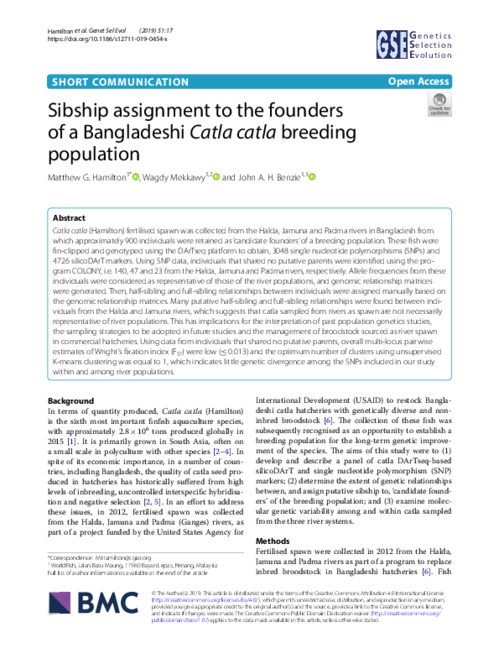Sibship assignment to the founders of a Bangladeshi Catla catla breeding population
Abstract
In terms of quantity produced, Catla catla is the sixth most important finfish aquaculture species produced globally in 2015. It is primarily grown in South Asia, often on a small scale in polyculture with other species. In spite of its economic importance, in a number of countries, including Bangladesh, the quality of catla seed produced in hatcheries has historically suffered from high levels of inbreeding, uncontrolled interspecific hybridisation and negative selection. In an effort to address these issues, in 2012, fertilised spawn was collected from the Halda, Jamuna and Padma (Ganges) rivers, as part of a project funded by the United States Agency for International Development (USAID) to restock Bangladeshi catla hatcheries with genetically diverse and non-inbred broodstock. The aims of this study were to (1) develop and describe a panel of catla DArTseq-based silicoDArT and single nucleotide polymorphism (SNP) markers; (2) determine the extent of genetic relationships between, and assign putative sibship to, ‘candidate founders’ of the breeding population; and (3) examine molecular genetic variability among and within catla sampled from the three river systems

